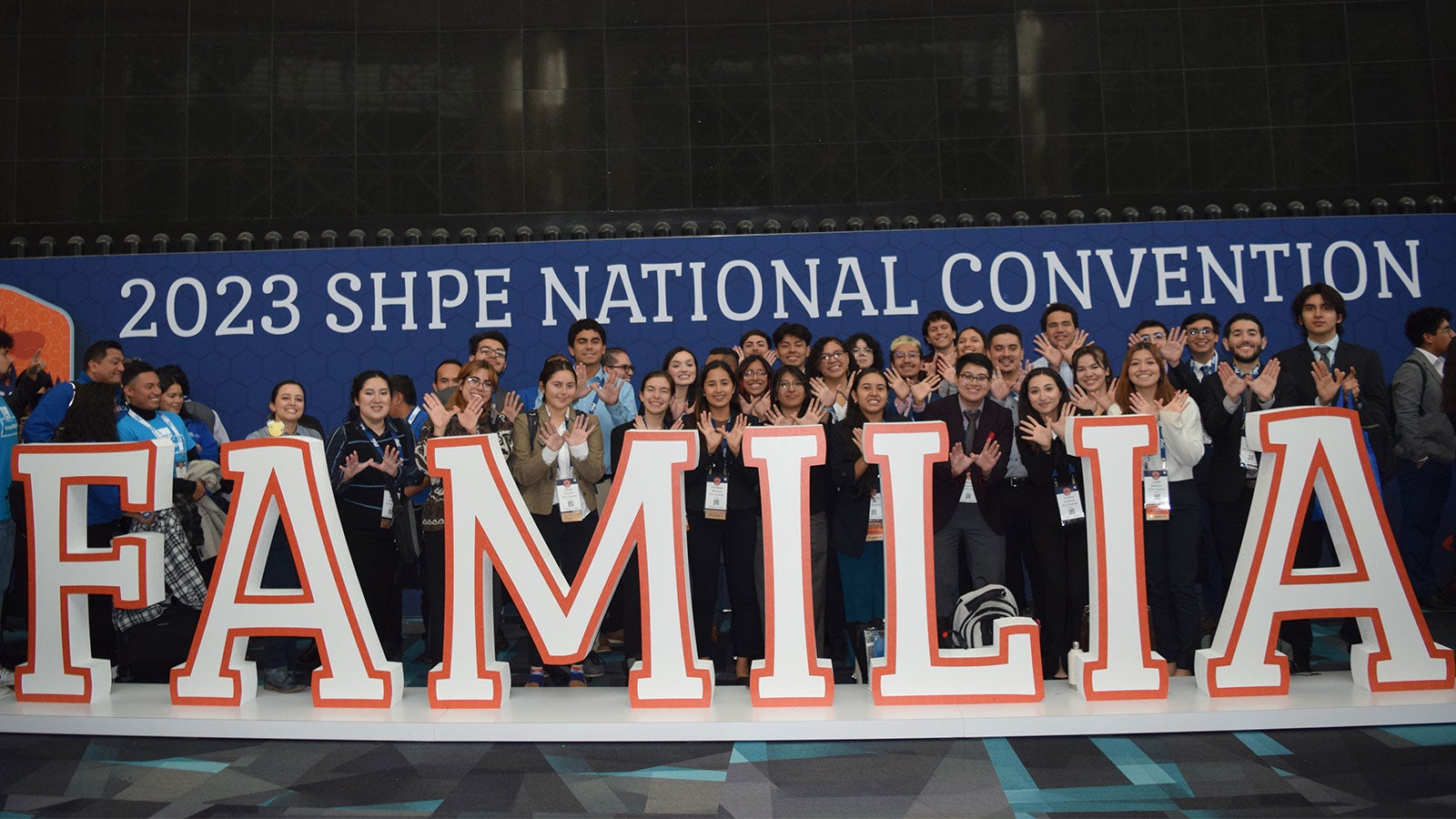The Rice University chapter of the Society of Hispanic Professional Engineers (SHPE) is known on campus for its efforts to empower the Latine community. Recently, the chapter also received recognition as a national leader through the SHPE National Chapter Awards Program. SHPE Rice was one of nine collegiate chapters that received the Silver Chapter Award at the SHPE National Convention—the country’s largest, annual gathering of Latine STEM students and professionals, with more than 12,000 in attendance.
Recipients of the Silver Chapter Award demonstrate excellence in the SHPE national core values: academics, chapter development, leadership, community service, and professional development. “Being awarded the SHPE Silver Chapter Award is a very prestigious honor for the SHPE Rice University Chapter,” said Noe Martinez, SHPE Rice President. “Receiving this award means that our chapter has excelled in every category and was deemed worthy of special recognition over 240 other chapters by SHPE Nationals.”
The Silver Chapter Award recognizes the work the chapter did in 2022-23 under the past president Vanessa Mendoza. “The award was given to our chapter based on a holistic review of the chapter's accomplishments,” Mendoza said. “Last year, our focus was on promoting a sense of familia — or family— within our chapter.” Through strategic student outreach and collaboration with other Latine societies on campus, SHPE grew its membership and nurtured the sense of familia amongst members. SHPE also made strides in the area of community service. Members organized a high school club for Latine students interested in pursuing careers in STEM and helped start a mentorship program at two underfunded Houston-area high schools. The chapter also launched a Noche de Ciencia (Science Night) at another high school—a program that continues this year.
As the current president, Noe Martinez hopes to build on the successes recognized by this award, especially in STEM outreach. “Community service, as a core SHPE pillar, remains one of our chapter's biggest areas of future improvement,” Martinez said. “Houston, being one of the largest and most diverse cities in the US, provides us with many opportunities to expand our outreach efforts to local schools, many of which lack community networks that can inspire students to pursue STEM beyond a K-12 education.” SHPE’s community service efforts help build a pathway for Latine students to enter STEM majors in college.
Winning this award has broader implications for the chapter and for the Latine community at Rice. Santiago Segarra, W. M. Rice Trustee Assistant Professor of Electrical and Computer Engineering and faculty sponsor for SHPE, sums up the significance in three areas. “First, it sends a strong message to the students: hard work pays off. SHPE is an extremely vibrant student organization and its student leadership is very engaged,” said Segarra. “Second, it helps with local and national visibility, potentially expanding the student constituency and helping our school in terms of diversity and inclusion. Third, it is a testament to the strength of the Hispanic community on campus. This makes me proud not only as a faculty member of the School of Engineering but as a Hispanic myself.”
The visibility this award brings to the chapter can have a lasting impact, empowering the Latine community at the systemic level. Cecilia Fernández, Assistant Director of Diversity, Equity, Inclusion and Outreach at the School of Engineering, shares that while this award draws attention to the accomplishments of SHPE, it also may strengthen diversity, equity and inclusion at Rice. “For people who come from communities that have been historically excluded from engineering, they can see people who look like them and who have shared lived experiences succeed at a place like Rice—a place that historically was not accessible,” said Fernández. “This helps future generations of engineers know that Rice will welcome them and support them in achieving their dreams.”

